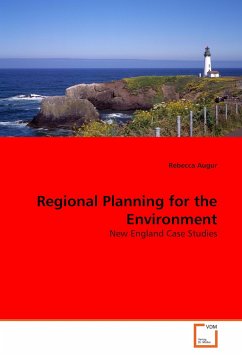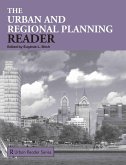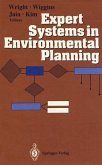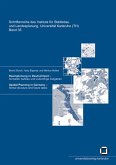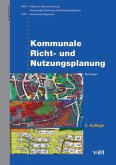A number of academics and policymakers have reached consensus that a regional approach to transportation, housing, environmental protection and economic development offers a viable means for addressing current planning problems. Research has shown that greater ecological health depends upon a holistic management and regulation of uses and activities on a regional scale. Given the emphasis on local autonomy and the lack of regional governance in New England, understanding which institutions and their key characteristics will be most effective in achieving truly multi-jurisdictional planning is critical to ensuring healthy ecosystems. This study compares three regional planning agencies that operate within different legal, political and financial frameworks, in an attempt to identify characteristics and features that lead to environmental planning success.
Bitte wählen Sie Ihr Anliegen aus.
Rechnungen
Retourenschein anfordern
Bestellstatus
Storno

